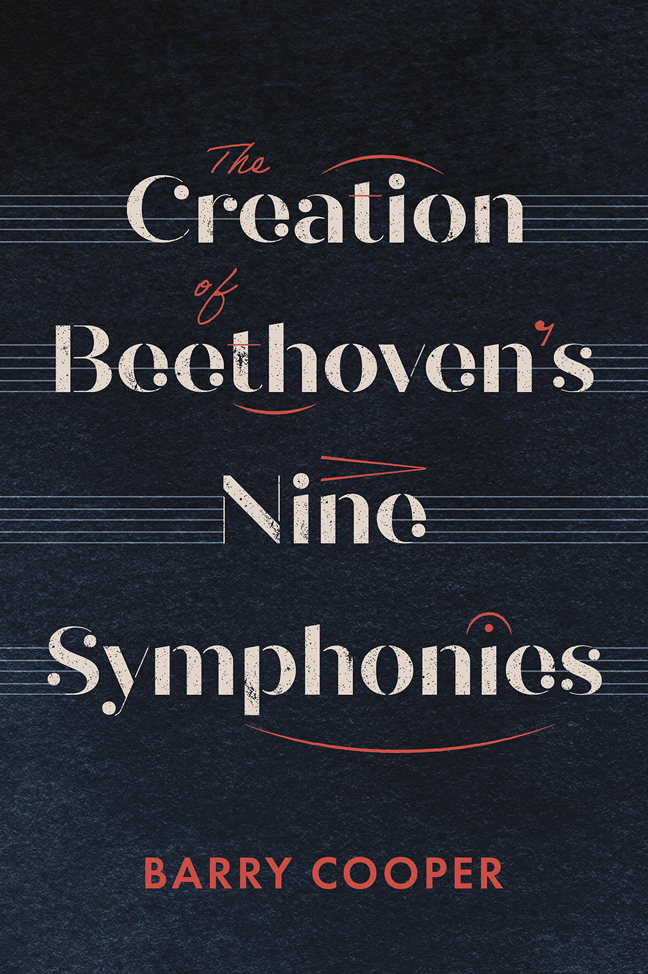Book contents
- Frontmatter
- Contents
- List of music examples
- List of tables and figures
- Preface and acknowledgements
- Abbreviations
- Introduction
- 1 The Long and Hazardous Road to the First Symphony, Op. 21
- 2 A Creation in Two Parts: The Second Symphony, Op. 36
- 3 Elevating the Genre: The Third Symphony (Eroica), Op. 55
- 4 The Oppersdorff Connection: The Fourth Symphony, Op. 60
- 5 Motivic Intensity: The Fifth Symphony, Op. 67
- 6 ‘More an Expression of Feeling than Painting’: The Sixth Symphony (Pastoral), Op. 68
- 7 ‘Great, Exalted’ Work: The Seventh Symphony, Op. 92
- 8 ‘Just Because it is Much Better’: The Eighth Symphony, Op. 93
- 9 The Philharmonic Connection: The Ninth Symphony, Op. 125
- 10 Epilogue
- Bibliography
- Index of Music Manuscripts
- Index of Beethoven’s Works
- General Index
7 - ‘Great, Exalted’ Work: The Seventh Symphony, Op. 92
Published online by Cambridge University Press: 02 March 2024
- Frontmatter
- Contents
- List of music examples
- List of tables and figures
- Preface and acknowledgements
- Abbreviations
- Introduction
- 1 The Long and Hazardous Road to the First Symphony, Op. 21
- 2 A Creation in Two Parts: The Second Symphony, Op. 36
- 3 Elevating the Genre: The Third Symphony (Eroica), Op. 55
- 4 The Oppersdorff Connection: The Fourth Symphony, Op. 60
- 5 Motivic Intensity: The Fifth Symphony, Op. 67
- 6 ‘More an Expression of Feeling than Painting’: The Sixth Symphony (Pastoral), Op. 68
- 7 ‘Great, Exalted’ Work: The Seventh Symphony, Op. 92
- 8 ‘Just Because it is Much Better’: The Eighth Symphony, Op. 93
- 9 The Philharmonic Connection: The Ninth Symphony, Op. 125
- 10 Epilogue
- Bibliography
- Index of Music Manuscripts
- Index of Beethoven’s Works
- General Index
Summary
Poco sostenuto – Vivace
Allegretto
Presto – Assai meno presto – Presto [etc.]
Allegro con brio
Initial plans
After the concert that included public premieres of Beethoven’s Fifth and Sixth Symphonies in December 1808, it was nearly three years before he embarked on the Seventh. In the meantime, much had changed. He had been offered a permanent position as Kapellmeister at Kassel in late 1808, but this had prompted several noblemen in Vienna to make a counter-proposal early in 1809, consisting of an annuity of 4,000 florins per year, designed to keep him in the capital city. They had surely been impressed by Beethoven’s extraordinary concert of 22 December 1808 in which so many new works, including the two symphonies, had been performed. The contract, drawn up by Baron Ignaz von Gleichenstein, with funds to be provided by Archduke Rudolph, Prince Ferdinand Kinsky and Prince Franz Lobkowitz, recognised Beethoven’s ‘extraordinary talents and genius’ (‘ausserordentlichen Talente und Genie’), and that he should be freed from financial anxiety so as to enable him to produce ‘great, exalted works that ennoble art’ (‘grosse, erhabene, und die Kunst veredelnde Werke’). Beethoven received the contract from Archduke Rudolph on 26 February, and it was signed by the sponsors on 1 March.
The implied expectation was, therefore, that Beethoven would continue composing more symphonies, among other great works, but the next symphony was delayed by various factors; the invasion of Vienna by the French in May 1809 disrupted society so much that Beethoven felt unable to compose anything significant for several months; and inflation reduced the value of his annuity almost immediately. He was also asked to fulfil several commissions – two piano sonatas and a fantasia for Clementi, incidental music to Egmont for the court theatre, fifty-three folksong settings for George Thomson, and in spring to summer 1811 two one-act singspiels, König Stephan and Die Ruinen von Athen, for Pest – plus some works that were probably commissioned, including the Fifth Piano Concerto, two string quartets (Opp. 74 and 95) and the ‘Archduke’ Trio. As soon as he had finished sketching the two singspiels, he began work on his Seventh Symphony, and the final sketches for Die Ruinen von Athen actually appear on the same leaf as some of the first known sketches for the symphony (BNba, BH 105), directly above them.
- Type
- Chapter
- Information
- The Creation of Beethoven's Nine Symphonies , pp. 171 - 196Publisher: Boydell & BrewerPrint publication year: 2024



